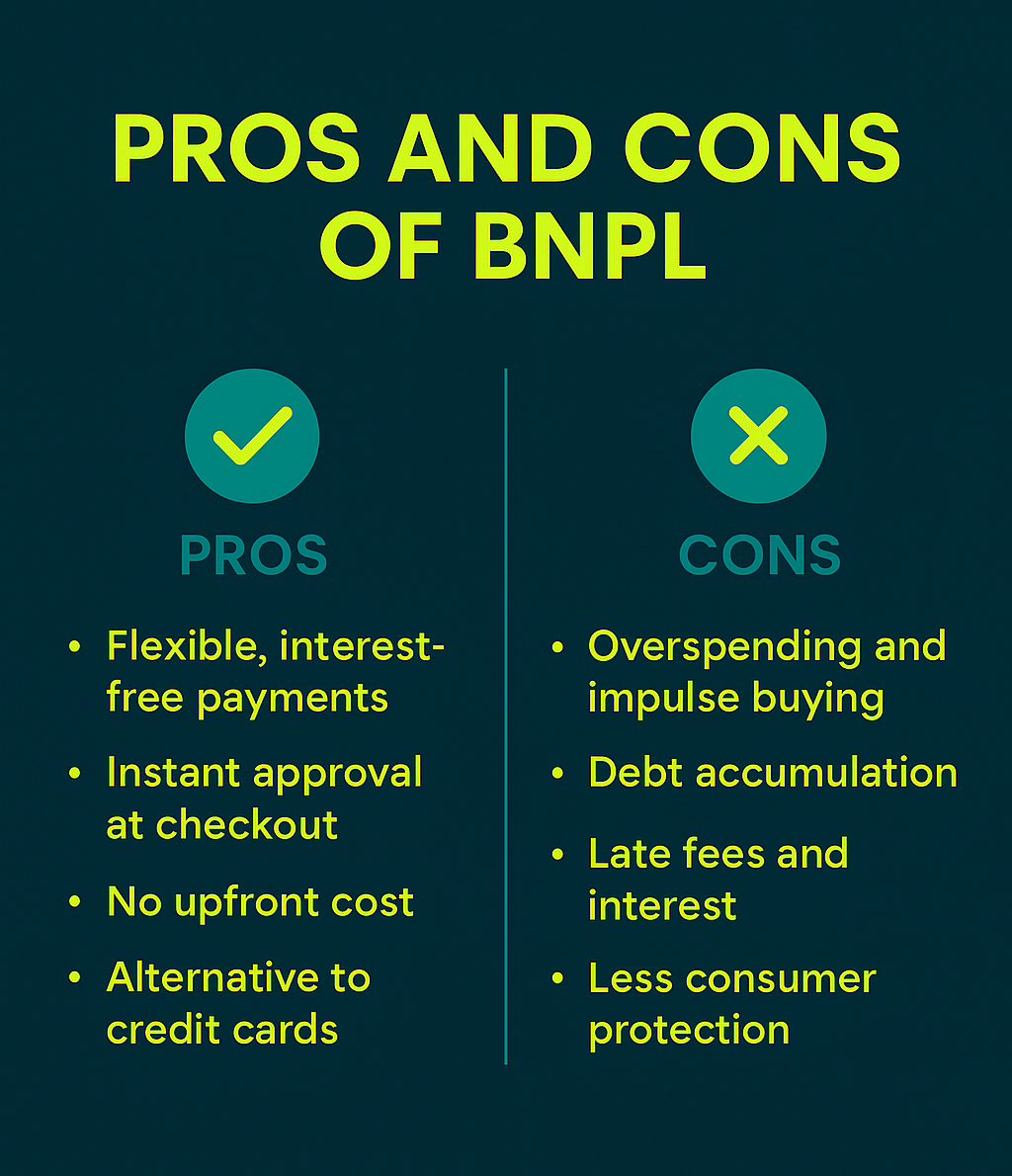Buy Now, Pay Later (BNPL) has surged in popularity among young people in the UK, becoming a go-to way to shop online without paying the full cost upfront. In fact, BNPL is now the second most common form of borrowing among young Brits, second only to credit cards. As more 18–30-year-olds opt for BNPL options at checkout, search queries like “managing BNPL debt” and “credit card vs BNPL” are on the rise. Clearly, many are wondering how to use these services wisely and what pitfalls to avoid. This blog will explore the growing use of BNPL, explain how it works, highlight its pros and cons, and offer tips on responsible borrowing. Our goal is to help you reach your debt free goals without harming your credit score.
Buy Now, Pay Later is essentially a short-term interest-free credit offered at the point of purchase. Instead of paying the full amount for a product upfront, you pay a portion (or nothing) now and the rest in a series of installments over a few weeks or months. For example, you might pay 25% of the price today and the remaining 75% split into three monthly payments. Major BNPL providers like Klarna, Clearpay, and PayPal “Pay in 3” partner with retailers to integrate this option right into the online checkout. Approval is usually instant with a soft credit check (which doesn’t impact your credit score), making BNPL extremely quick and convenient.
Why do people use BNPL? It’s easy, fast, and often advertised as “0% interest.” If you pay on time, you generally pay no extra fees or interest, essentially getting a short-term loan for free. This makes BNPL attractive to young consumers, especially those who may not have credit cards or who feel traditional credit is too much hassle. In fact, BNPL has become the “go-to” payment option for many, nearly 75% of users consider it a better alternative to credit cards. With BNPL, you can snag that new phone or outfit immediately and spread the cost over time, which feels easier on your budget.
However, as with any form of credit, there’s more to BNPL than the shiny “pay later” promise. Let’s break down the pros and cons so you know what you’re getting into.
The biggest draw of BNPL is the ability to split a purchase into smaller chunks without paying interest (as long as you meet all payments on schedule). This can be a budgeting boon, breaking a £200 cost into four £50 payments can be easier to manage. Many young people find that smaller, regular instalments help them budget better and avoid running up traditional credit card debt.
BNPL services offer a seamless, almost instant approval process at checkout. There’s no long credit card application or credit limit to worry about. If you’re aged 18+, have a bank account, and a relatively decent history, you can often get approved in seconds. That means you get the item right away, a big win for the Netflix generation used to instant access.
For someone with an empty bank account a week before payday, BNPL can feel like a lifeline. You might pay nothing now, or just a small first installment, and still get your purchase. This “buy now, get it now, pay later” setup is psychologically appealing. It doesn’t feel like taking out a loan, even though it is one. And because most BNPL users are under 40, the marketing on social media and online stores is tailored to a generation comfortable with digital finance.
Some young adults are wary of credit cards (and their high interest rates). BNPL is seen as a modern, friendly alternative. There’s no rotating balance or 20% APR looming if you don’t pay in full, as long as you pay installments on time, it truly is interest-free. Additionally, using BNPL won’t immediately affect your credit score the way a credit card might if you carry a balance.
While BNPL can be useful, it’s not all upside. Here are some key cons to be aware of:
In short, BNPL can lead to financial trouble if used recklessly. Awareness is key. So how can you enjoy the convenience of BNPL while staying in control of your money? This is where responsible use and smart budgeting come in.
Many people are curious about credit card vs BNPL for managing purchases. The truth is, both have a place, and both have risks.
Bottom line: If you’re weighing a credit card vs BNPL for a purchase, think about your own spending habits. If you trust yourself to pay a credit card off each month and want to build credit (and maybe earn rewards points), a credit card could be beneficial. If you prefer to avoid interest completely and just need to spread a cost over a short period, BNPL can work, just set those payments in your calendar and don’t be late. In either case, responsible borrowing is what matters most.
BNPL can be a useful tool in your financial toolkit, but only if you handle it wisely. Here are some practical tips and budgeting strategies to manage BNPL and stay in control:
By following these tips, you can enjoy the convenience of BNPL responsibly. The key is mindfulness: know what you’re signing up for and have a plan to pay it off. BNPL should work for you, not against you.
Using BNPL doesn’t have to be a bad thing, it can be a handy tool for budgeting if used with discipline. Remember that responsible borrowing is about making informed choices and understanding the trade-offs. Whether it’s BNPL, a credit card, or any other form of credit, always ask: “Does this purchase align with my budget and my long-term goals?”. If you’re striving for financial independence and aiming for debt-free goals, every decision to borrow should be weighed carefully.
If you feel like BNPL or other debts are starting to weigh you down, or you simply want guidance on managing your money better, help is available. At Zomi Wealth, we specialize in helping young professionals and individuals make sense of their finances. From budgeting tips to strategies for improving your credit score, our advisors have your back. Sometimes a quick chat about your situation can shine a light on the best path forward.
Ready to take charge of your financial future? Book a free consultation with Zomi Wealth to get personalised guidance on managing debt, building credit, and achieving your goals. We’re here to support you on your journey to financial wellness, whether that means using BNPL in moderation, choosing the right credit tools, or creating a plan to become debt-free.
Remember, you don’t have to navigate money matters alone. With the right advice and habits, you can enjoy the benefits of modern financial tools like BNPL and stay on track toward a secure, confident financial life.
For more retirement planning insights, market updates, and tax-saving tips, follow Zomi Wealth on:







